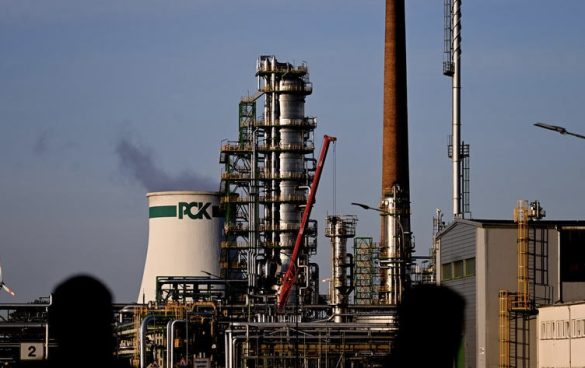KEY POINTS
- Angola launched the KUMA Project to train 5,000 workers ahead of the Cabinda refinery’s September startup.
- The refinery will initially process 30,000 barrels per day, with plans to double output in a second phase.
- The program aims to cut fuel imports, boost local jobs, and align industrial expansion with workforce development.
As it gets ready to put its second Cabinda refinery online next month, Angola is working harder to connect the growth of its oil infrastructure with the training of its labour force.
This week, the government unveiled the KUMA Project, a comprehensive training program aimed at giving over 5,000 Angolans technical skills directly related to the future Cabinda refinery.
With an initial processing capacity of 30,000 barrels per day, the $1 billion Cabinda refinery, which is supported by London-based asset manager Gemcorp and operated by state oil company Sonangol, is scheduled to begin operations in September.
President João Lourenço’s efforts to strengthen energy security and lessen Angola’s expensive reliance on imported fuels revolve around the refinery.
Refinery expansion linked to jobs and skills
In Cabinda, Petroleum Minister Diamantino Azevedo announced the KUMA initiative, which will offer certified training in a variety of fields, including IT, plumbing, electrical engineering, welding, and mechanics. To meet local needs, instruction will be provided in both fixed and mobile centers, with a focus on courses for women, youth, and individuals with disabilities.
In addition to preferential access to jobs associated with refineries, trainees will receive a monthly allowance of 100,000 kwanzas ($116). In addition to providing skilled labor to the refinery, the program aims to address Angola’s wider unemployment issues and guarantee that locals, not foreign contractors, benefit from new energy projects.
The second phase of the refinery, which is already planned, will eventually double its capacity to 60,000 barrels per day. According to officials, Angola’s approach of coordinating industrial investment with equitable economic growth is reflected in the combination of increased refining and domestic training initiatives.
Historically, Angola, the third-largest oil producer in Africa, has imported refined products at exorbitant prices and exported crude. In order to meet growing local demand and lessen reliance on supply shocks from abroad, the Cabinda facility represents a shift toward domestic processing.
The project comes as the oil industry in Angola embarks on a new phase of expansion. Three significant projects have come online this year alone: the Agogo floating production vessel, which has a capacity of 120,000 barrels per day, and the Begonia and CLOV Phase 3 fields, each of which is adding 30,000 barrels per day. These developments, along with the refinery, have the potential to support industrialization and significantly improve Angola’s balance of payments.



